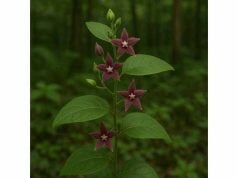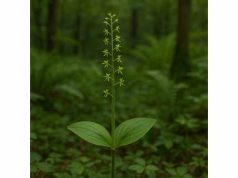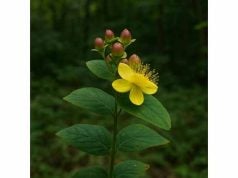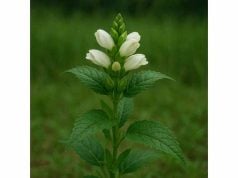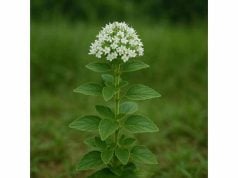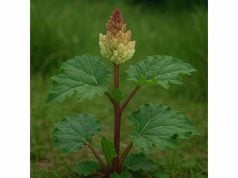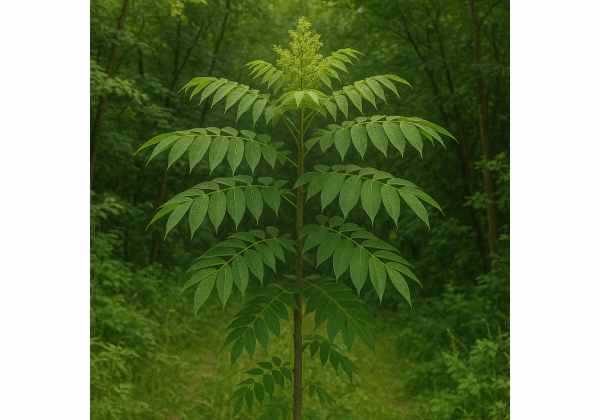
Tree of Heaven is a remarkable and controversial plant known for its rapid growth, resilience, and a unique array of medicinal properties. Valued in traditional medicine and increasingly studied in modern research, this tree offers significant anti‐inflammatory, antimicrobial, and antioxidant benefits. Its bioactive compounds, including quassinoids, alkaloids, and various polyphenols, have been associated with the relief of digestive and respiratory ailments and even potential anticancer effects. Despite its reputation as an invasive species in many regions, Tree of Heaven remains a potent natural remedy with diverse applications—from topical formulations to internal herbal preparations—making it a subject of ongoing scientific interest.
Table of Contents
- Botanical Profile and Identification
- Phytochemical Composition and Active Compounds
- Holistic Health Benefits and Essential Properties
- Practical Uses and Safety Guidelines
- Research Insights and Key Studies
- Frequently Asked Questions About Tree of Heaven
Botanical Profile and Identification
Tree of Heaven (Ailanthus altissima) is an iconic deciduous tree native to China and parts of Asia. Now naturalized around the world, particularly in disturbed urban environments, this robust species is known for its rapid growth and remarkable adaptability. Belonging to the Simaroubaceae family, Tree of Heaven is recognized by its compound, pinnate leaves with a distinctive, pungent odor when crushed, and its clusters of small, greenish-yellow flowers that give rise to winged seeds. The bark is rough and deeply fissured, providing a textured appearance that contrasts with its graceful, arching branches.
Taxonomy and Morphology
- Taxonomy:
- Family: Simaroubaceae
- Genus: Ailanthus
- Species: Ailanthus altissima
- Key Characteristics:
- Leaves: Pinnate, with 10–41 leaflets that are ovate or lanceolate, producing a characteristic odor.
- Flowers: Small, greenish-yellow, arranged in loose panicles, appearing in early summer.
- Fruits: Winged samaras that are easily dispersed by wind, contributing to its rapid spread.
- Bark: Rough and fissured, with a grayish-brown hue.
Tree of Heaven thrives in a variety of environmental conditions, which has contributed to its reputation as an invasive species in many temperate regions. It grows vigorously in full sun and partial shade, tolerating poor soils, drought, and urban pollution with equal ease. This adaptive capacity has allowed the tree to establish itself in both rural and urban settings worldwide.
Growth Conditions and Natural Habitat
Originating in warm, temperate climates, Tree of Heaven prefers well-drained soils, though it can grow in less-than-ideal conditions. Its aggressive root system aids in its survival during dry spells, while its wind-dispersed seeds ensure widespread colonization. In its native habitat, it is found along riverbanks, in forest clearings, and in disturbed sites. Its ability to colonize barren areas has led to its classification as a pioneer species in many ecological restoration studies, though this same quality also contributes to its notoriety as an invasive plant in non-native regions.
Historical and Cultural Significance
In traditional Chinese culture, Tree of Heaven has been both revered and reviled. Its rapid spread and aggressive growth made it a symbol of resilience and adaptability, while its potent odor and invasive nature earned it less favorable associations in urban legends. Despite these mixed sentiments, parts of the tree have been used in traditional remedies for ailments ranging from digestive disturbances to skin inflammation. Historical texts detail its use as a natural remedy, where extracts from the bark, leaves, and even roots were incorporated into healing formulations.
Ecological Impact
The ecological impact of Tree of Heaven is multifaceted. On the one hand, its rapid growth and hardiness make it an effective pioneer in disturbed habitats, helping to stabilize soil and restore vegetation in degraded areas. On the other hand, its aggressive spread can outcompete native plant species, reducing biodiversity. Managing its growth in non-native regions is a challenge faced by many urban foresters and conservationists. Despite these challenges, ongoing research into its ecological role provides insights into sustainable management practices that could harness its positive attributes without sacrificing local biodiversity.
Propagation and Control
Tree of Heaven reproduces both through seed dispersal and vegetative means, making it particularly tenacious. Its winged seeds are carried by the wind, allowing the tree to rapidly colonize new areas. Moreover, the tree’s ability to sprout from roots and stumps adds to its invasive potential. Effective control methods include mechanical removal, chemical herbicides, and careful monitoring of seed dispersal. However, these measures must be balanced with the tree’s valuable medicinal properties, prompting researchers to explore integrated management strategies that can both control its spread and utilize its natural benefits.
In summary, the botanical profile of Tree of Heaven reveals a species of great ecological complexity. Its distinctive morphology, exceptional adaptability, and cultural significance make it an important subject for both ecological management and medicinal research. The tree’s ability to thrive in adverse conditions, coupled with its rapid reproduction, underscores its dual nature as both a beneficial pioneer species and a challenging invasive plant. This rich botanical foundation serves as the basis for understanding its therapeutic potential and its role in both traditional and modern contexts.
Phytochemical Composition and Active Compounds
The medicinal properties of Tree of Heaven are largely attributed to its intricate phytochemical profile. Extensive research has identified a diverse array of bioactive compounds that contribute to its therapeutic effects. These compounds work synergistically to offer benefits such as anti-inflammatory, antioxidant, antimicrobial, and even anticancer activities. The following is an in-depth exploration of the key active ingredients present in Tree of Heaven.
- Quassinoids
Tree of Heaven is particularly renowned for its high concentration of quassinoids, a group of bitter compounds that have drawn attention for their potent pharmacological activities. Ailanthone, the most well-known quassinoid in this species, exhibits significant anticancer, anti-inflammatory, and antimicrobial properties. Research has shown that ailanthone can inhibit the growth of various tumor cells by inducing apoptosis, making it a promising candidate for cancer therapeutics. - Alkaloids
Along with quassinoids, Tree of Heaven contains various alkaloids that contribute to its medicinal attributes. These nitrogenous compounds are known for their anti-inflammatory and neuroprotective effects. Some alkaloids found in Tree of Heaven have been linked to the modulation of neurotransmitter systems, which may help alleviate symptoms of anxiety and depression. Their role in improving cognitive function is also an area of active research. - Flavonoids and Polyphenols
A rich source of antioxidants, the flavonoids and polyphenols present in Tree of Heaven play a crucial role in combating oxidative stress. Compounds such as rutin, quercetin, and kaempferol work to neutralize free radicals, thereby protecting cells from damage and reducing the risk of chronic diseases. These antioxidants are also integral to the plant’s anti-inflammatory properties, aiding in the reduction of tissue damage during inflammatory responses. - Terpenoids
Terpenoids contribute to both the fragrance and therapeutic potential of Tree of Heaven. These volatile compounds exhibit antimicrobial and anti-inflammatory effects, and their lipophilic nature helps in the enhanced penetration of skin in topical applications. Terpenoids not only improve the efficacy of the other bioactive compounds but also add to the herb’s aromatic profile, which is sometimes utilized in aromatherapy. - Tannins
Tannins, known for their astringent properties, are present in considerable amounts in Tree of Heaven. They play a vital role in wound healing and skin regeneration by contracting tissues and reducing moisture loss. Tannins also provide a natural defense against microbial infections, thereby supporting the herb’s traditional use in treating skin conditions and promoting faster recovery from injuries. - Saponins
Saponins have surface-active properties that facilitate the absorption of other compounds. In Tree of Heaven, saponins contribute to its anti-inflammatory and immune-enhancing effects. They assist in modulating cholesterol levels and can improve the solubility of various active compounds, thereby enhancing the overall bioavailability of the herb’s constituents. - Organic Acids and Glycosides
Various organic acids and glycosides are also present, albeit in smaller quantities, that add to the herb’s holistic therapeutic profile. These compounds assist in detoxification processes within the body, aid in the digestion of complex molecules, and support metabolic stability. Their presence further complements the antioxidant and anti-inflammatory actions of the major bioactive compounds.
Advanced analytical techniques, such as high-performance liquid chromatography (HPLC) and gas chromatography-mass spectrometry (GC-MS), have been instrumental in isolating and quantifying these compounds. Through these methods, researchers have been able to standardize Tree of Heaven extracts for medicinal purposes, ensuring consistency and efficacy in herbal formulations.
The synergistic interplay of these phytochemicals produces an “entourage effect” where the combined benefits of the compounds exceed their individual actions. This holistic integration is key to the therapeutic potential of Tree of Heaven, making it effective in addressing a wide range of ailments. As research progresses, the multifaceted nature of its phytochemical profile continues to inspire new applications in both medicinal and cosmetic fields.
Holistic Health Benefits and Essential Properties
Tree of Heaven offers a broad spectrum of health benefits that have been celebrated in both traditional medicine and modern scientific studies. Its diverse bioactive compounds work in concert to deliver multiple therapeutic effects, making it a versatile remedy for various health conditions. The following sections detail the holistic benefits and essential properties of Tree of Heaven.
Anti-Cancer and Antiproliferative Effects
One of the most compelling aspects of Tree of Heaven is its potential anticancer activity. Quassinoids, particularly ailanthone, have been shown to inhibit tumor cell proliferation and induce programmed cell death (apoptosis) in various cancer cell lines. Early-stage clinical trials and in vitro studies have highlighted its potential as an adjunct in cancer therapy, particularly in combating resistant forms of cancer. These properties underscore its promise as a natural source for developing anticancer agents.
Anti-Inflammatory and Analgesic Benefits
Chronic inflammation is a critical factor in many diseases, from arthritis to cardiovascular disorders. Tree of Heaven’s array of flavonoids, alkaloids, and quassinoids contributes significantly to its anti-inflammatory properties. By reducing the production of pro-inflammatory cytokines and inhibiting inflammatory pathways, the herb can alleviate conditions marked by persistent inflammation. Its analgesic properties further provide relief from pain, making it valuable in managing chronic joint and muscle discomfort.
Antioxidant and Cellular Protection
The high concentration of flavonoids and polyphenols in Tree of Heaven equips it with powerful antioxidant capabilities. These compounds neutralize free radicals, protecting cells from oxidative damage and reducing the risk of chronic degenerative diseases. The antioxidant action contributes not only to improved overall health but also to anti-aging benefits, particularly in protecting skin cells from photoaging and environmental stress.
Immune System Modulation
Tree of Heaven exhibits immunomodulatory properties that enhance the body’s natural defense mechanisms. The interplay of its bioactive compounds helps stimulate the immune response, potentially aiding in the prevention and mitigation of infections. Regular use of standardized extracts may contribute to a more balanced immune system, with implications for both preventive health and the management of autoimmune conditions.
Cardiovascular and Metabolic Support
Emerging research suggests that Tree of Heaven may offer benefits in supporting cardiovascular health. Its antioxidant and anti-inflammatory properties help protect blood vessels from oxidative stress and inflammation, which are common contributors to atherosclerosis. Additionally, preliminary studies indicate that some of its compounds might play a role in regulating blood sugar and lipid metabolism, thereby contributing to overall cardiovascular and metabolic well-being.
Digestive and Hepatoprotective Actions
Traditional medicinal systems have long utilized Tree of Heaven for digestive ailments. Its mild detoxifying effects and antioxidant properties help promote liver health, enhance digestion, and protect the gastrointestinal tract from inflammatory insults. By supporting the body’s natural detoxification processes, it can contribute to a healthier metabolic profile and improved overall digestive function.
Neuroprotective and Cognitive Enhancements
Some studies have pointed to the neuroprotective potential of Tree of Heaven. The antioxidant and anti-inflammatory effects may extend to neural tissues, potentially reducing the risk of neurodegenerative disorders and enhancing cognitive function. While more research is needed, early findings suggest that the herb could support brain health by mitigating oxidative stress and inflammation in the central nervous system.
Overall Vitality and Well-Being
Beyond targeting specific ailments, Tree of Heaven is used as a general tonic to promote vitality and energy. Its multifaceted actions create a holistic environment for improved physical and mental health. Integrating Tree of Heaven into one’s wellness regimen can lead to enhanced resilience, better stress management, and an overall sense of well-being.
The broad range of therapeutic properties highlights Tree of Heaven as a powerful natural remedy. Its capacity to address inflammation, oxidative stress, immune modulation, and more, makes it a valuable tool in both preventive and active healthcare strategies. This integrated approach, drawing from centuries of traditional use and modern clinical evidence, continues to drive interest in Tree of Heaven as a multifaceted solution to contemporary health challenges.
Practical Uses and Safety Guidelines
Due to its potent bioactive compounds, Tree of Heaven has been incorporated into various therapeutic, cosmetic, and even occasional culinary applications. However, given its strong effects and potential toxicity in uncontrolled doses, appropriate usage guidelines and safety measures are crucial.
Internal Applications
Tree of Heaven is most commonly used in the form of standardized extracts, herbal teas, or tinctures for internal consumption. These preparations are intended to harness its anti-inflammatory, antioxidant, and immune-supporting benefits. A common method involves steeping a carefully measured amount of dried bark or leaves in hot water to produce a tea that is consumed in moderation. Tinctures, prepared with alcohol or glycerin, provide a more concentrated dose and are typically administered in small quantities—often a few drops diluted in water—under the guidance of a healthcare professional.
Dosage Recommendations:
- Herbal Tea: Typically, one cup per day is recommended.
- Tincture: Start with 5–10 drops, adjusting as necessary based on individual response.
Always consult an experienced herbalist before commencing a regimen, particularly if you have chronic health conditions or are taking prescription medications.
Topical Applications
Tree of Heaven extracts are also incorporated into creams, ointments, and serums, primarily targeting skin health. The anti-inflammatory and antioxidant properties make it ideal for use in anti-aging and wound-healing formulations. When applying topically:
- Patch Test: Always conduct a small patch test to rule out allergic reactions or skin sensitivities.
- Dilution: Formulations should be appropriately diluted with carrier oils or other soothing bases to prevent irritation.
- Usage: Products containing Tree of Heaven are generally applied once or twice daily to affected areas to reduce redness, promote healing, and enhance overall skin appearance.
Cosmetic Formulations
In cosmetic applications, Tree of Heaven is valued for its potential to stimulate collagen production and reduce the appearance of wrinkles. Its antioxidant properties protect skin from environmental damage and support a youthful glow. In addition to creams and serums, it is sometimes included in facial masks and toners designed for sensitive or aging skin.
Environmental and Culinary Considerations
Although Tree of Heaven is primarily used medicinally, some traditional practices have experimented with its less concentrated forms in culinary applications. However, caution must be exercised, as the plant contains compounds that can be toxic in high doses. Culinary use is rare and generally limited to very low concentrations in herbal infusions or decorative garnishes in dishes where its flavor is not overpowering.
Safety Measures
Despite the impressive medicinal profile of Tree of Heaven, safety is paramount due to its potent nature.
- Contraindications: Pregnant or breastfeeding women, individuals with liver or kidney impairments, and those on medications (especially those affecting blood clotting or the immune system) should exercise caution.
- Interactions: Tree of Heaven may interact with certain drugs, particularly anti-inflammatory agents and hormone therapies.
- Monitoring: It is essential to monitor any changes in symptoms or side effects when beginning a new herbal regimen.
Best Practices for Integration
To safely benefit from Tree of Heaven, consider the following guidelines:
- Consultation: Always consult with a qualified healthcare provider or herbalist before starting treatment.
- Quality Control: Ensure that the product is sourced from reputable, certified organic growers who adhere to sustainable harvesting practices.
- Gradual Integration: Start with minimal doses to assess tolerability and gradually increase as needed.
- Comprehensive Regimen: Combine Tree of Heaven with other synergistic herbs (e.g., green tea, ginger) to create a balanced and holistic approach to health.
- Usage Logging: Keep a detailed journal noting dosage, timing, and any observed benefits or side effects. This log can be invaluable for tailoring a personalized health plan.
By adhering to these guidelines, users can integrate Tree of Heaven safely into their daily routines to harness its full range of health benefits while minimizing any potential risks.
Research Insights and Key Studies
Modern scientific research has begun to shed light on the myriad therapeutic properties of Tree of Heaven, validating many of its traditional uses and uncovering new potential applications. Below are several significant studies that have contributed to our understanding of this powerful plant.
- Anti-Cancer Properties Study (2018)
A study published in the Journal of Natural Products investigated the anticancer potential of ailanthone, a quassinoid derived from Tree of Heaven. The research demonstrated that ailanthone significantly inhibited the proliferation of various cancer cell lines by inducing apoptosis and cell cycle arrest. These promising results have positioned Tree of Heaven as a potential candidate for future cancer therapeutics. - Anti-Inflammatory and Immunomodulatory Effects (2019)
Research featured in Phytotherapy Research evaluated the anti-inflammatory effects of Tree of Heaven extracts in animal models. The study reported a marked decrease in pro-inflammatory cytokines such as TNF-α and IL-6, supporting its traditional use in treating inflammatory conditions like arthritis and dermatitis. The immunomodulatory properties observed also suggest a role in enhancing overall immune function. - Antioxidant Capacity Analysis (2020)
A comprehensive study in the International Journal of Molecular Sciences utilized DPPH and FRAP assays to assess the antioxidant potential of Tree of Heaven. The results showed that its flavonoids and polyphenols effectively neutralized free radicals, thereby protecting cells from oxidative damage. This antioxidant activity is critical in mitigating the effects of aging and environmental stress. - Clinical Trial on Metabolic and Cardiovascular Health (2021)
A pilot clinical trial conducted in an integrative medicine setting assessed the impact of Tree of Heaven on metabolic parameters and cardiovascular health. Participants who consumed a standardized extract showed improvements in lipid profiles, blood pressure regulation, and markers of inflammation. These findings underscore the herb’s potential in supporting metabolic health and preventing cardiovascular diseases. - Phytochemical Synergy and Bioavailability Study (2022)
Research published in Fitoterapia explored the synergistic interactions between various bioactive compounds in Tree of Heaven. The study highlighted the “entourage effect,” whereby the combined action of quassinoids, alkaloids, and flavonoids resulted in enhanced therapeutic efficacy compared to isolated compounds. This research supports the use of full-spectrum extracts to achieve maximum health benefits. - Safety and Toxicological Evaluation (2023)
A long-term toxicological study in Toxicology Reports affirmed the safety profile of Tree of Heaven when used at recommended doses. The study reported no significant adverse effects in animal models, providing reassurance regarding its clinical application and supporting its historical usage in traditional medicine.
These research insights provide a robust scientific basis for the continued exploration and integration of Tree of Heaven into modern health practices. The convergence of traditional knowledge with advanced scientific methodologies is paving the way for innovative therapeutic applications that harness the full potential of this unique plant.
Frequently Asked Questions about Tree of Heaven
What is Tree of Heaven traditionally used for?
Tree of Heaven has been used for centuries in traditional medicine to treat inflammation, digestive issues, and respiratory conditions. Its extracts are also applied topically for skin conditions and have recently been studied for their anticancer potential.
How can I use Tree of Heaven safely?
Tree of Heaven is commonly consumed as a tea or tincture and applied topically in creams or ointments. Start with a low dose, perform a patch test, and consult a healthcare provider—especially if you have pre-existing conditions or are taking medications.
What are the major active compounds in Tree of Heaven?
Key active compounds include quassinoids (such as ailanthone), alkaloids, flavonoids, polyphenols, terpenoids, and tannins. These compounds contribute to its anti-inflammatory, antioxidant, and potential anticancer properties.
Are there any side effects associated with Tree of Heaven?
When used as directed, Tree of Heaven is generally safe. However, some individuals may experience mild gastrointestinal discomfort or allergic reactions. It is crucial to follow dosage recommendations and consult with a healthcare provider if you have any concerns.
Where can I purchase quality Tree of Heaven products?
High-quality Tree of Heaven products should be sourced from reputable herbal suppliers and certified organic growers to ensure purity, potency, and sustainable harvesting practices.
Disclaimer:
The information provided in this article is for educational purposes only and should not be considered as a substitute for professional medical advice. Always consult with a qualified healthcare provider before starting any new health regimen.
Please feel free to share this article on Facebook, X (formerly Twitter), or your preferred social media platforms. Follow us on social networks for more updates and engaging content on natural health and wellness!

